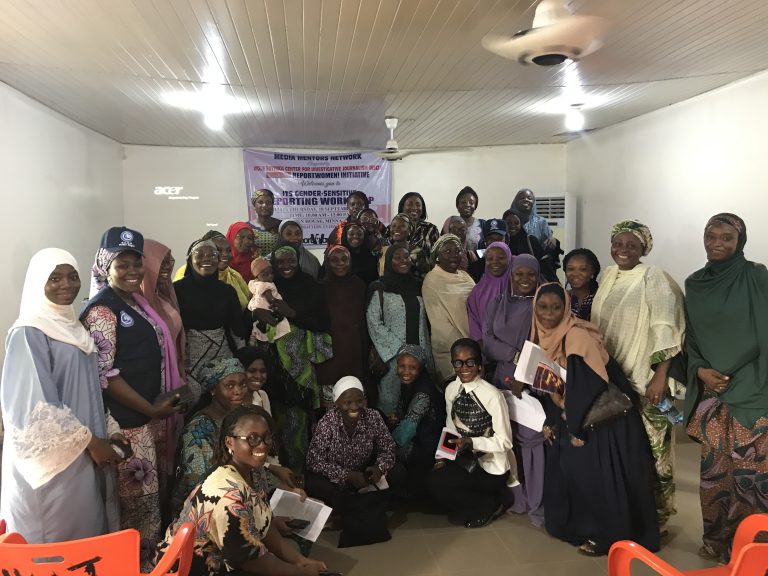Female journalists from private and state-owned media across Niger State have been charged to champion gender-sensitive reporting as a way of amplifying women’s voices and driving inclusive storytelling in the media.
The call came during a one-day intensive workshop on gender-sensitive reporting organised by Media Mentors Network with support from the Wole Soyinka Centre for Investigative Journalism (WSCIJ) under its Report Women! News and Newsroom Engagement Project, funded by the Bill & Melinda Gates Foundation.
The training held on Thursday, 18th September at the IBB Pen House, Minna, gathered 50 female journalists drawn from newspapers, radio, television, and online platforms.
Delivering the lead paper, “Understanding Gender and Media: What Gender Means, What Gender-Sensitive Reporting Entails, and Why It Matters,” lecturer and radio presenter, Dr. Valda Martins urged participants to pursue balance between their careers and family responsibilities to maintain mental well-being.
“A journalist who is grounded at home and at work is better positioned to give authentic voice to other women,” she said, stressing that gender-sensitive journalism must go beyond token representation to address structural inequalities.
In her presentation, Justina Asishana, Coordinator of Media Mentors Network and Niger state Correspondent of The Nation Newspaper, underscored that everyday reportage often overlooks women’s perspectives.
“Gender-sensitive reporting promotes balance in storytelling,” she explained. “We must deliberately draw journalists’ attention, especially female journalists, to this gap so that they can correct it through evidence-based and inclusive reporting.”
Legal practitioner Barrister Favour Abraham focused on ethics and the law, calling on journalists to respect privacy and obtain consent when covering sensitive stories such as gender-based violence or crime.
“Always balance the public’s right to know with individuals’ right to privacy,” she advised. “Be fully aware of your constitutional rights and those of others to avoid infringing or operating in ignorance of the law.”
The workshop featured sessions on framing gender stories, and practical steps to establish Gender Desks in newsrooms which would be special units dedicated to promoting inclusive content and monitoring harassment policies.
Participants also reviewed a nGender-Sensitive Reporting Manual and a checklist for ethical coverage of women and girls.
For Hassana Shehu Kagara, a broadcast journalist, the training was transformative.
“It’s an eye-opener,” she said. “I’ve gained fresh insights on how to report gender-sensitive issues and help bridge the gaps in our media narratives.”
Several attendees echoed her enthusiasm, noting plans to pitch women-focused investigations and push for Gender Desks within their organisations.


